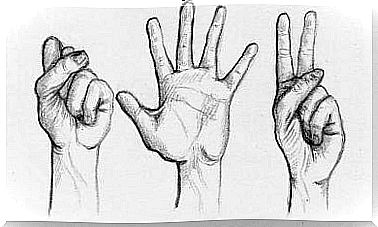When Doing Nothing Is A Decision

Sometimes we try to work things out by following a path that causes us to trip over the same rock over and over again. And sometimes we are also impatient, wanting to find an answer to a problem that makes us suffer.
If all attempts have failed or even made the problem worse, perhaps the best thing to do is stop trying. Even if it’s for a while, sometimes doing nothing is best. It’s already a decision.
Not because you’re not interested, not because you’re giving up or have failed, but because letting go is another solution, an alternative. It also doesn’t mean that you have to let time go by and think that it will solve it.
Doing nothing does not mean abandoning everything you have achieved ; this is already a path taken that contributes to your learning.
It’s just about improving your emotional state by moving away from what’s hurting you and undermining your self-esteem. It’s about moving away prudently from what hurts you.

When doing nothing is the best choice
There are many types of problems and each one requires a different solution.
It would be impossible to apply this rule in a general way to all the questions of life, and doing nothing is not a song of inactivity, laziness or indifference : the objective is to improve a certain situation.
Here are some examples we can cite where doing nothing is a decision:
– A small child who knows that, with his tantrums, he gets his parents’ attention.
We quickly respond to her desperate call and she repeats the same strategy again to get what she wants.
What if you don’t do anything? What if you calmly ignore her reminder and later explain that your strategy is no good?
With the simple fact of not responding to your call, you will be failing to reinforce your conduct. Which means that this attitude is less likely to be repeated in the future as a way to achieve something.
So it’s not about doing nothing per se, it’s about being a good strategist and not biting the hook.
– A friend makes you responsible for your discomfort.
You tried to help her as best you could and spent the time you could. Still, she blames him for not having been by her side the way she would have liked.
It is normal to go through bad times in life and understand that a person can act unfairly, but is it necessary to justify this personal attack?
Hearing from someone you care about that you’ve let them down in some way is often terrible. But you cannot be responsible for not being there when the person who had the problem wanted you to be there, at the right time.
In the end, you can’t read people’s minds, nor are we superheroes who can handle a drop in someone else’s mood at any time. And even less if we are not even aware that this was happening.
You have to be there, of course, but not at any cost and under any circumstances.

– You and a person do not stop arguing.
With each new attempt, the situation only gets worse and there doesn’t seem to be any light that illuminates a good outcome.
In this case, if you’ve tried everything, maybe the best thing to do is let the situation settle for a while. Doing nothing, but which on the other hand is already doing something.
Obviously, in this case, it is better to communicate it openly to the other person, trying to make them understand that it is better to take a little distance rather than keep increasing the problem.
When we take time to improve our emotional state and move away from a source of suffering, we can see more clearly and better analyze conflicting situations . Thus, we are able to make decisions away from stress, which is supposedly getting worse. And no, we are not selfish for that.








